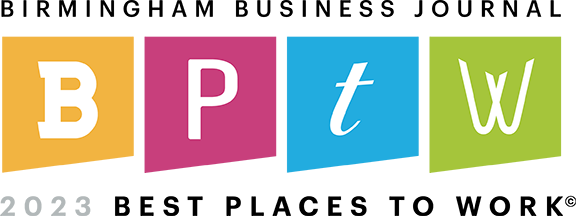
Can child support arrears be forgiven?
Child support back pay cannot be totally forgiven or waived, but there are a few situations that can help you handle it.
- Double-check the amount the court states you are in arrears. You can always ask the court to recalculate this amount to make sure it is correct.
- If your child lived with you for a period that the back pay is referencing, the judge may lessen the child support amount. The court’s judgment will often depend on the amount of time and financial support that was given during the child’s stay.
- Back pay does accrue interest but, in some cases, you may not have to pay all of it.
- You can request a manageable payment schedule. While this doesn’t lessen the amount owed, it can make it so that you don’t fall behind, even more, trying to pay your original balance.
- Reach a settlement with the other guardian. If the debt is just too overwhelming, you may be able to reach a lump-sum settlement with the other guardian.
- You can also get a private loan to pay the back pay in some states. That said, this should always be a last resort since you will owe the loaned money back in the future with interest as well.
How do I pay child support if I don’t have a job or income?
Paying a required amount of money for child support may seem like an impossible task when you are unemployed, but there are a few methods to help lighten this load until you find your next job.
- As always, be sure to tell the courts as soon as possible about any changes to your employment status. By doing this, you can request a temporary suspension or reduction of your payments until you are able to find a job again.
- Apply for unemployment benefits if you are eligible. Child support payments can be deducted from these benefits to keep you from owing money you should have paid earlier (called arrears).
When will I get my tax return for child support?
You will not get a tax return for child support. At this time, child support payments cannot be claimed on your annual taxes. That said, you might be able to claim your child as a dependent on your taxes, depending on your situation, but this normally requires the custodial parent to sign Form 8332 allowing the deduction to you. Either way, your child support will not be legally subtracted from your taxable income.
How much child support is taken from my unemployment, social security or disability benefits?
If you don’t pay your child support, it is considered an outstanding debt. Your arrears are collectible from unemployment, social security or disability benefits that are considered disposable income. The only social security benefit that is exempt from child support garnishments is SSI.
These benefits can pay both your monthly child support and any past due child support you may owe. If you do owe child support arrears, it can be garnished up to the federal limit of 65% depending on factors such as the amount of arrears owed or if you are supporting another family.
What should I do when child support is not being paid?
Whether you are the guardian parent or a noncustodial parent responsible for paying child support, it is frustrating when child support is not being paid.
If this happens, communication is key. Let the courts know what is going on so legal action can be taken. This may mean the required monthly payment will be readjusted so at least some money will make it to the child.
If your situation seems out of the ordinary or you need some help finding out the right direction to take things before speaking to a lawyer, there is a child support hotline that can provide basic guidance on child support issues. Their number is 888-369-0323.
Also, your state may have a similar hotline set up with that will provide you with more knowledge about your specific state’s laws and regulations.
What happens if I don’t pay child support?
Since child support payments are a court order, the nonpayment of child support puts you in contempt of court. In the worst-case scenario, this offense can land you in jail.
Many times, a judge will choose another form of punishment, such as wage garnishments, license suspension, or seizure of tax returns if it means the child support will be paid. One way to avoid any of these punishments is to keep the court aware of your situation.
If you lose your job, become sick for a long time or can’t keep up with the payments, it’s best to tell the court about your situation as soon as possible. Letting the court know what is happening in your life makes it possible for the child support order to be readjusted.
What happens when you go to jail for child support?
Having to go to jail for unpaid child support isn’t that typical, but it is possible. If a judge chooses jail time as your punishment for unpaid support, a few things can happen. Jail time is possible and well as the seizure of your unpaid support. These seizures can include your tax refund, a property lien or bank account liquidations.
You will continue to increase your child support balance while in jail. As a convicted criminal, you will have a public record showing your conviction.
No one wants any of these circumstances stacked on their plate, which is why it is important to work with the courts to avoid jail time and pay child support on time. That said, if you have been to jail for missing child support, your life is not over – it will just add some challenges that you can overcome.
Is not paying child support a felony?
You can receive a felony charge for not paying child support, but most cases don’t. That said, it’s important to understand this is a possibility.
The charge will depend on your violation record and the amount of child support back pay that is owed. Usually, you will be charged as a misdemeanor, which results in immediate payment of the arrears or additional fines.
If you do not pay your child support frequently though, you might receive a felony charge on your record. If this happens, you could spend time in jail.
How much jail time do you get for non-payment of child support?
Child support jail sentences will make you serve less than six months, but some convictions can be up to two years. These sentences are often attached to repeat offenders who owe large amounts of child support back pay. The time given in the sentence comes from what the judge believes is a decent amount of time for the offender to understand their wrongdoing and thus pay the debt.
Do you have to pay child support in jail?
Yes, child support does continue to accumulate while in jail and often comes with interest. Debt like this can increase quickly. This creates child support back pay that will guarantee garnishments on your wages or even the government withholding your property and assets.
If you are in jail and gaining child support arrears, it is beneficial to work out a payment schedule when you are released. This will let the courts know you are trying to get rid of the debt in a reasonable amount of time.
Does child support affect SNAP benefits?
The child support you receive counts toward your income, according to SNAP. This means that child support payments may change your eligibility for SNAP benefits once it is added to other income you receive.
That is not to say you should not try to get child support if you are afraid your benefits will be affected. If you are worried about this, talk with your SNAP office or a lawyer to find out your best option.
If you are on the other side of the fence and are responsible for paying monthly child support, then your child support order can affect your ability to receive SNAP benefits. If you are behind on your child support payments, you may not get the benefits.
How do child support housing benefit work?
Housing benefits and child support can become tricky since each state has its own rules about both child support and housing benefits. In many states, you can’t collect both housing assistance and child support at the same time.
In many cases, if a guardian parent applies for housing benefits and includes a child in the application, the government will first look to see if there is any child support being paid for the child. If there is not, the state will open a child support case to have the noncustodial parent begin paying the child support owed.
From this point, the housing benefit will either be approved or denied. If approved, some states provide the housing benefits but only pay the child a minimum amount in child support instead of the amount a court may calculate. This amount can vary by state but will most likely be less than the monthly child support allowance the court may order. Many times this happens because the housing benefit amount will be much more than child support assistance.
On the flip side, the noncustodial parent is still responsible for paying their child support order (so it is kept up to date if, and when, the child moves off of housing assistance).
When it comes to housing benefits and child support, there are a lot of options to be weighed such as immediate housing needs. In this instance, it may be best to consult a caseworker or local assistance agency to see what option may be best – especially in a housing emergency.
How do I increase child support benefits?
The economy will always be fluctuating and inflation can play a role in our lives, including on child support. In the lifetime of your child, just as you have seen in your life, the cost of food, clothing, rent, medical care and education will continue to rise. This means your child support should match the current cost of living.
What once may have been enough to support your child’s day-to-day needs now just isn’t enough to cover the current the economy, a move to another area or a change of schools.
This will mean another visit to the courts to have the child support reexamined for an adjustment. This will likely come with some discussion of what the costs are and proof that they have risen. From here it will be up to the judge to determine if and how much the support benefits can be raised.
What happens if I overpay child support?
Overpayment of child support is extremely tricky no matter where you live. There are many factors that can cause your overpayment to be considered a “gift” that you can never get back. When it comes to child support, it is best to tell the court about any changes that have happened that could affect the amount you would be required to pay. These changes can include changes in your employment status, increases or decreases in your salary, marriage or divorce, support of another child, or even changed custody on the supported child.
Any of these examples could drastically affect the payment requirement of your child support. Letting the courts know as soon as possible when one of these changes occurs can help you avoid any overpayments and the headaches that come with trying to get your lost money back.
Child support benefit calculators by state
If you are wondering how much your monthly child support payment may be there are many resources available to help you determine this. By simply searching “child support calculator” and the name of your state, you will find many sites available. Be sure to keep a few things in mind here:
- These calculators can only estimate your monthly support amount based on the information you provide and your state’s laws. The final amount will be decided by the courts.
- You will want to use the state your child resides in, as this is the state the child support order will originate, and thus follow that state’s rules of child support.
- These calculators often only calculate monthly child support, not back pay child support.
- Not every state has a calculator.
If you are interested in finding out the possible child support garnishments to your paycheck there is a list below with links to each state’s calculators or calculation protocols. Again, these are just estimates and only a judge and determine the final amount to be paid:
- Alaska
- Arizona
- Arkansas
- California
- Colorado
- Delaware
- Florida
- Georgia
- Hawaii
- Idaho
- Illinois
- Indiana
- Iowa
- Kentucky
- Louisiana
- Maine
- Maryland
- Massachusetts
- Michigan
- Minnesota
- Missouri
- Montana
- New Hampshire
- New Mexico
- New York
- North Dakota
- Ohio
- Oklahoma
- Oregon
- Pennsylvania
- Rhode Island
- South Carolina
- South Dakota
- Tennessee
- Texas
- Utah
- Vermont
- Virginia
- Washington
- West Virginia
- Wisconsin
- Wyoming
Thanks for reading. As an employment agency, we’ve worked with our share of Teammates and their child support, so we know it can be a confusing process. We hope this post has answered some of your questions. If you’re interested in finding a job with us, call your local Ōnin Staffing to get started.
This article is not intended to serve as legal advice. When considering your child support options, you should seek the advice of legal counsel.












Thanks!
yes my daughter moved from South Carolina when she was 17 years old so why am I still paying child support for the state of South Carolina when she lived in Baltimore Maryland isn’t that fraud
Hi I have only arrears left. Will i receive my tax return or at least a percentage.? Also what about the stimulas? Last but not least will I receive anything from uneployment?? My son is 25 out of the Army and lives with me most of the time and his dad collects money from me and keeps it.. a great piece of work. I am losing everything and cant keep afloat with this current situation thank you